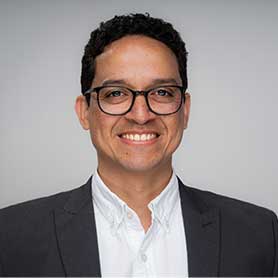Building resilience and a competitive edge in the F&B industry
dss+ event post-script
The food and beverage (F&B) industry is under pressure from all sides. Rising costs, unpredictable supply chains, stricter regulations, growing competition, and shifting consumer demands are making it harder for companies to remain competitive. Traditional strategies focused on cost-cutting and efficiency alone are no longer enough to guarantee long-term success.

At the dss+ event in Frankfurt, industry leaders discussed the biggest challenges facing the industry today.
While many of these challenges are well known, the discussions made one thing clear: companies need to rethink their approach by balancing efficiency with flexibility, integrating sustainability, investing in their workforce, and strengthening safety and resilience to be in a stronger position for the future.
This may not sound new, and in fact, it isn't. It highlights that many leaders already have the tools they need to navigate uncertainty. But if that is the case, why are so many companies still struggling?
Several key questions remain:
- How should businesses measure and justify flexibility when cost control remains a priority?
- Can sustainability become a competitive advantage rather than a compliance burden?
- Is the industry focusing enough on long-term workforce development or still treating labour shortages with short-term hiring fixes?
This article, based on insights shared by speakers during the event, critically explores these challenges.
Operational excellence and the limits of efficiency
For decades, efficiency has been the foundation of business success. Companies have focused on streamlining operations, reducing waste, and standardising processes to remain competitive.
Many of today's biggest risks, supply chain breakdowns, inflationary pressures, and evolving regulations are unpredictable. While cost-cutting improves margins in stable conditions, it can leave companies exposed to sudden disruptions when conditions shift. The industry saw this first-hand during the COVID-19 pandemic, when businesses that had minimised supplier redundancy found themselves unable to respond when critical materials became unavailable.
"Operational excellence is not just about reducing costs and driving efficiency," said Prof. Dr. Jochen Schlapp, Frankfurt School of Finance & Management. “The question leaders should be asking is: how adaptable is your organisation when faced with uncertainty?"
This shift from static efficiency to dynamic resilience requires companies to rethink how they define and measure operational success. It is no longer enough to optimise for cost savings; businesses must ensure they build agility into their operating models.
Developing workforce adaptability
Beyond supply chain improvements, workforce agility is crucial. Companies still rely on rigid procedures that limit frontline employees' ability to respond to disruptions.
"An organisation that doesn't invest in its people's ability to think independently is an organisation that will struggle to adapt," said Schlapp.
Businesses must train their workforce not just in technical skills, but in critical thinking, problem-solving, and decisionmaking.
Employees must be empowered to identify risks and make real-time adjustments, rather than waiting for top-down instructions.
There are a few considerations we need to reflect on:
- How can flexibility be integrated into operations without driving up costs? Are companies using predictive modelling, scenario planning, or real-time data analytics to strike the right balance?
- Are resilience metrics being tracked alongside efficiency? Many businesses still measure success based on cost reduction; should they also track response times to disruptions and adaptability metrics?
- Are automation strategies increasing or decreasing flexibility? If systems fail, do employees have the skills to step in?
Sustainability: a business decision above regulation
Consumers, investors, and regulatory bodies are demanding greater transparency, making carbon reduction, ethical sourcing, and waste reduction critical business priorities.
However, many businesses still see sustainability as a cost rather than a business asset. Investments in renewable energy, sustainable packaging, and waste reduction come with upfront costs, and while large companies can absorb these, smaller businesses often struggle to integrate sustainability without harming profitability.
Authors



